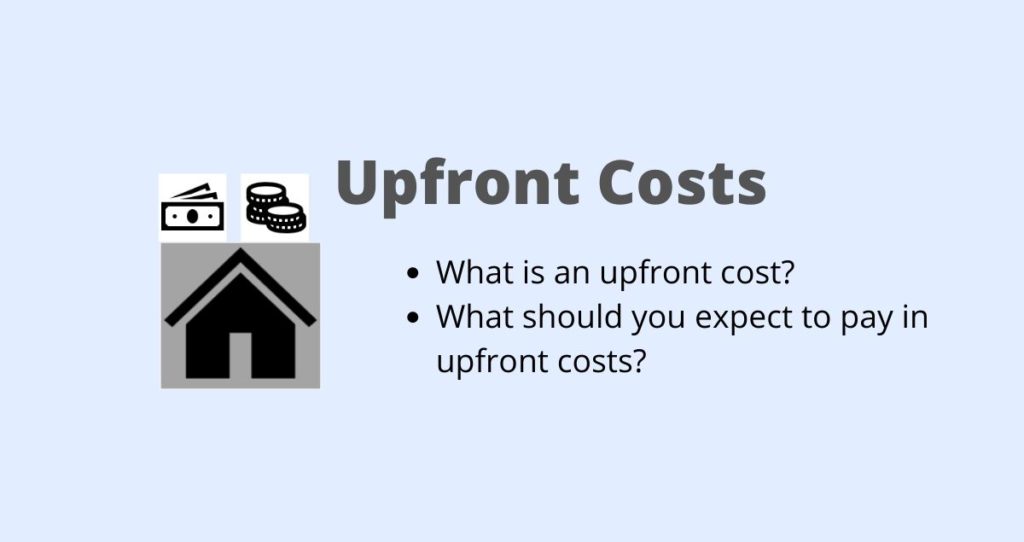Definition of upfront costs?
The upfront costs are out of pocket money a homebuyer spends when buying a house. This amount is considered after the offer has been accepted and the sale becomes successful. For example, after you have chosen to buy the house and your offer has been accepted, you will spend money toward inspection, appraisal, down payment, etc.
What are the upfront costs?
During the process of buying a house, there are upfront costs you will cover before you own the house. The following are common upfront costs.
>>MORE: How Much Does It Cost To Buy A House?
1. Down payment
The down payment will be the biggest upfront cost you will pay on the house. This amount will vary based on the value of the house, lenders’ requirements, and the types of mortgage you are applying for. The down payment is usually 20% for a conventional mortgage. However, some qualified homebuyers can pay as little as 3% for other forms of mortgages such as FHA mortgages.
2. Closing costs
Closing costs will be another big expense homebuyers cover during the purchase of a house. As noted by Bank of America, closing costs are usually between 3-5% of the total mortgage amount and they are paid during the closing.
Closing costs cover some of the following expenses, based on BoA and Freddie Mac.
- Attorney fees
- Underwriter fees
- Credit report fees
- Appraisal fees
- Title search and related services
- Origination fee
- Tax fees
- Escrow account fees
- Mortgage insurance
- Survey services fees
- Related government recording fees
These costs will vary from one buyer to another. For example, homebuyers who have at least a 20% down payment will not be required to purchase mortgage insurance.
>>Related: 74 Things To Look For When Buying A House
3. House inspection
The house inspection is very important when purchasing a house. The inspection will help the buyer to unravel repair issues that must be addressed during the purchase. For example, if the inspector finds a sunken foundation, the buyer can use this issue and renegotiate the price (depending on contingencies and the nature of the sale). The inspection will be conducted by a licensed inspector.
The home inspection is not expensive. As noted by Bankrate, the home inspection will range between $300 to $450. However, the inspection can cost a lot more if the property is much bigger. The buyer is responsible for these inspections and the seller may not be reliable for issues found after the purchase if the buyer chooses to skip the inspection.
>> MORE: 7 Reasons You Should Get A House Inspection
4. Earnest money
Also known as ‘good faith deposit’, the earnest money is the money a buyer deposits to show his/her commitment toward buying the property. The earnest money can be used to cover a portion of the down payment or closing costs if the sale becomes a success.
This deposit is a percentage of the purchase price. As noted by Realtor, the earnest money is between 2-3%, however, this amount can vary depending on the seller’s requirements and market sentiments. For example, if you are in a seller’s market, the seller can require a much bigger deposit due to competition among buyers.
5. Other expenses (Optional)
After buying the house, there will be one more expense before you can take a break. This cost will include all money you will spend to move into your new home. If you are moving everything yourself, the moving cost can only be the time you spend and gas for your car(s).
On the other hand, the moving expenses can be huge if you choose to use a professional mover.
More learning resources
- Closing Costs And Closing And How They Work
- What Is A Purchase And Sale Agreement?
- Addendum: What Is An Addendum?
- What Is An Underwriter And What Do They Do?
- Tenancy In Common: How Does It Work?









